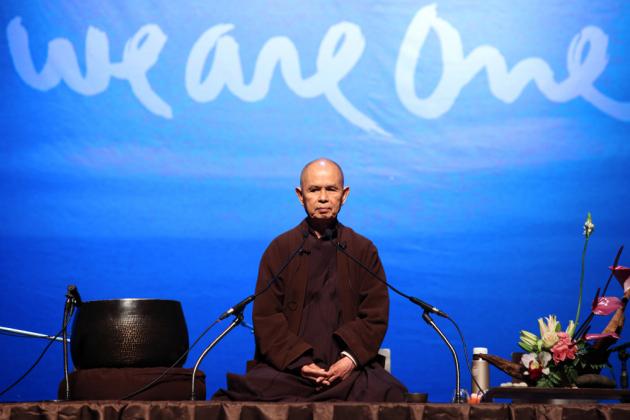
With Thais still politically poles apart and the conflict between supporters of the yellow and red shirts likely to intensify over proposed amendments to the Constitution, perhaps it is time to take heed of the teachings of Thich Nhat Hanh.
The Zen master suggests that mindful breathing, mindful walking and deep listening can help us reconcile everything from personal relationships to political conflicts.
Speaking at the “Thich Nhat Hanh Public Talk: Together We are One” last Tuesday night at Siam Paragon’s Royal Paragon Hall, an event organised as part of month-long Thailand tour, the Zen master warned of the dangers of losing love in a consumer society.
“Many people think that the more they consume, the happier they’ll become,” says the 87-year-old, who looks 10 years younger than his age. “Yet we can observe that many of those who have of money and who have achieved fame still suffer a lot.”
The teacher and activist says he know many rich businessmen whose wives and children are not happy. “They are victims of their own success. Without love, we cannot be happy. If you are too busy making money, you have no love. After a day of hard work, you don’t have much to offer to your loved ones.
“We need to ask ourselves ‘Do we have time to love and take care of the persons we care for?’ A father who is always busy making money said to his son, ‘Tomorrow it’s your birthday, son. What do you want for your birthday? I will buy it for you’. The boy shrugged off the question then finally replied “I don’t want anything. What I want is you’.”
Thich Nhat Hanh defines love as “being there for the persons you love”.
“The most precious gift you can give to your loves one is your presence. Make your presence fresh,” he stresses.
Understanding and love can be cultivated through mindfulness and if you know how to practice mindful breathing and walking, you can make your presence fresh, the Zen master explains.
The Buddha teaches 16 exercises in mindful breathing. The third exercise is to be aware of your body. “Breathing in, I am aware that I have a body. Breathing out, I smile with compassion. When you sit in front of your computer, you forget that you have a body, so it’s a good time to practise the third and fourth exercises. The fourth exercise is to release tensions in your body. You can do these exercises wherever you are, even sitting in a car.”
And while walking from the car park to your office, you can practice mindful walking, he adds.
“The Buddha teaches us that we should enjoy our in-breaths. Every inhalation is joyful and nourishing and every exhalation can release tension. When you walk to the office, even if the path is short, you might like to practice mindful breathing and mindful walking.”
While breathing in, take two steps and become aware of the touch of your feet on the floor, he advises. “And when you become aware of the meeting between feet and floor, you stop thinking. Mindful walking helps you enjoy every step. When you take the first step, say “I’ve arrived.” And when you take the second step, again say, “I’ve arrived.” To arrive here is to arrive in the here and now.
“The Buddha teaches us that the past has gone and the future has not yet come. Real life is in the present moment.
“While breathing out,” he continues, “take three steps. This is because our out-breaths are normally longer than our in-breaths. When you take the first and second steps, say ‘I am home’. And when you take the third, say ‘I am already home’.
“Your true home is in the here and now and you can get in touch with life.”
To cultivate calm and peace for the day or night ahead, Thich Nhat Hanh suggests couples or family members hold mindful sitting sessions. “A person who does not have calmness and peace cannot be happy,” he points out.
The seventh mindfulness exercise is to be aware of painful emotions while the eighth exercise serves to calm them. “Painful emotions do not allow us to be peaceful therefore we have to know how to handle them,” says the Zen master.
“Anger, fear or suffering is a kind of energy. If you don’t know how to handle these, you lose the energy for giving. The eighth exercise aims to generate the energy of mindfulness and take care of your feelings and emotions.
“While breathing in, bring your mind back to your body. When the mind and body are together, you are at home and the energy of mindfulness makes you truly present in the here and now. And when you have enough energy of mindfulness and are aware of your feelings, you have enough peace and freshness to offer to those you love.”
Retreats at Plum Village communities have long offered ways to bring happiness to people as well as restore communication to couples who haven’t talked to each other in years. Participants learn about mindful breathing, mindful walking and deep listening. “When they know how to listen mindfully, they are able to reconcile,” says the monk.
At the national level, Thich Nhat Hanh says the opposition parties can practice deep listening to bring about reconciliation, adding that reconciliation has not been possible because they lack peace and calmness. Each politician, he stresses, must sit down calmly and look at the sufferings of his opposite numbers.
“We don’t need to be in power in order to serve the country. If opposition parties have enough calmness and peace, they will be able to produce projects to help the country.”
The party in power should also apply the same principles. “They can say, ‘We know you are suffering. We would like to listen to your nation-serving policies. We know you can save our countries from difficulties. We can combine insights of both parties to serve the country.”
Source: National Multimedia


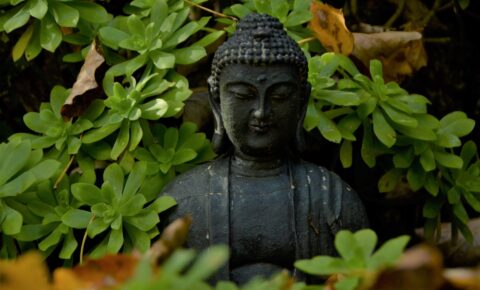
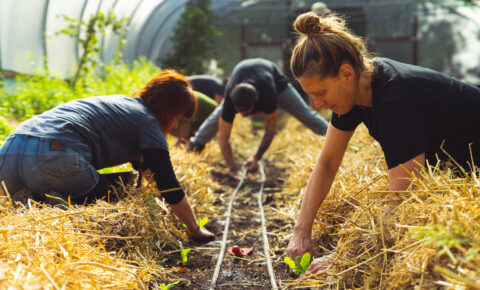
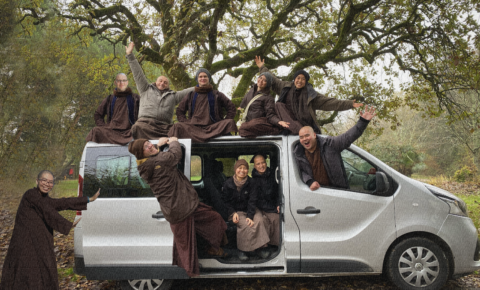
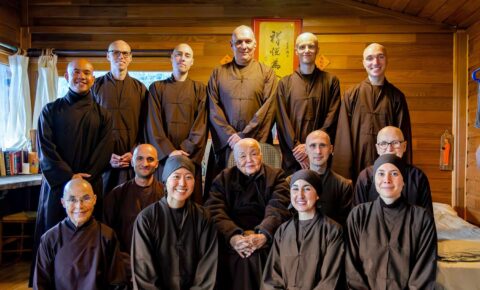
Join the conversation